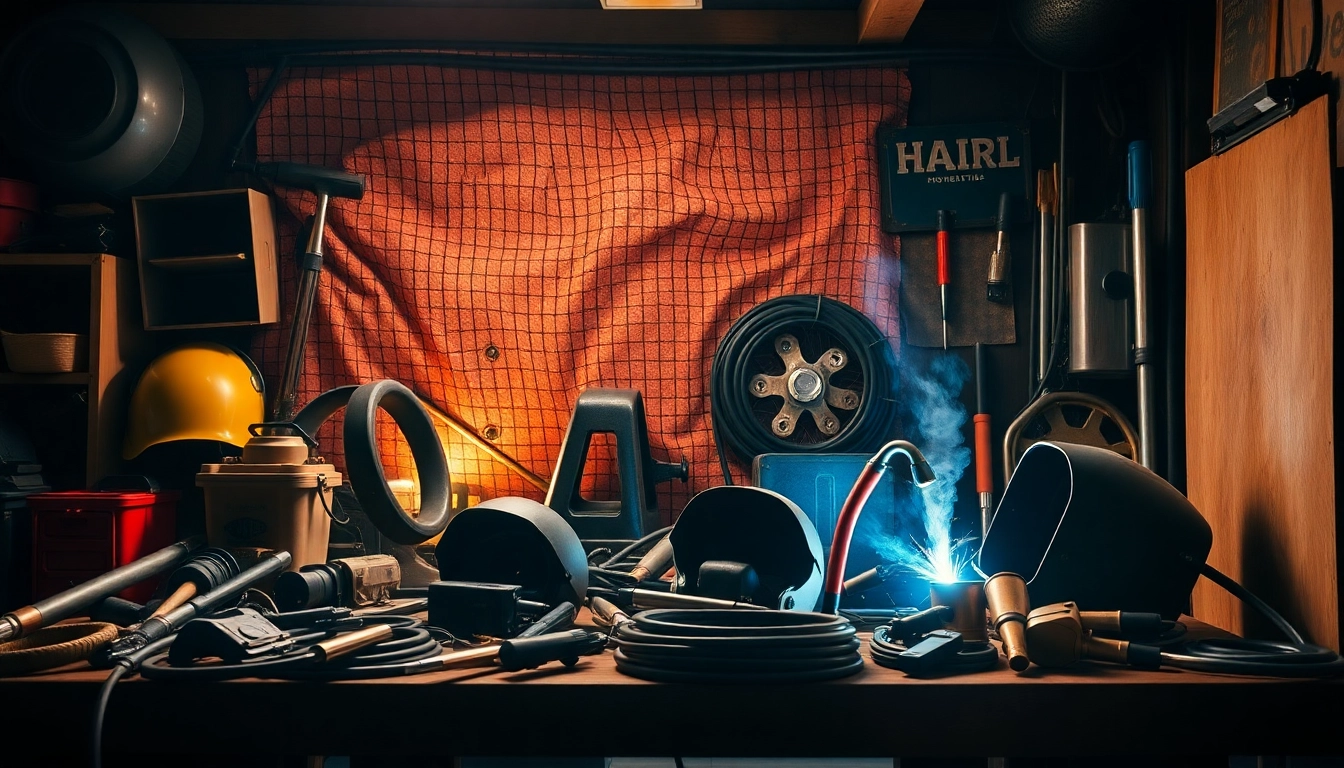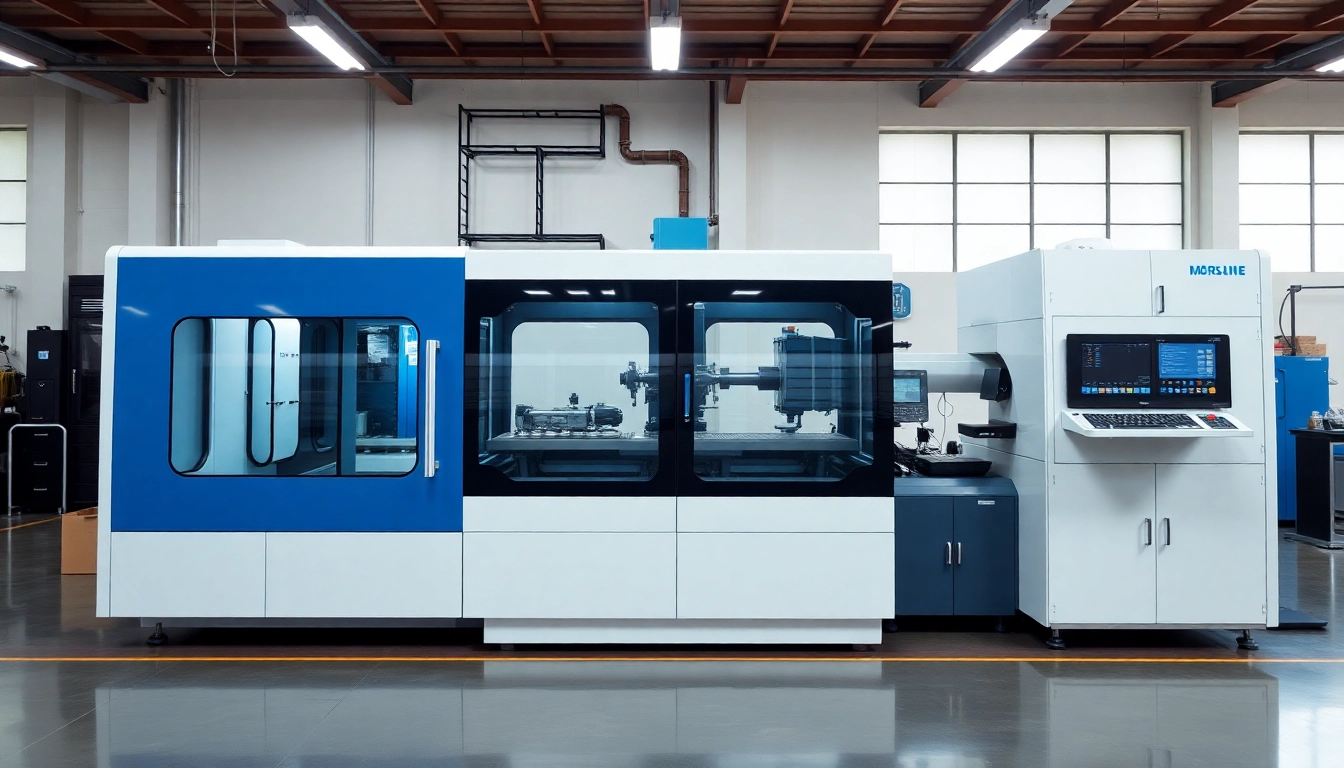Understanding Welding Supplies Near Me
When it comes to tackling welding projects, having the right supplies readily available can make all the difference. Whether you are a professional welder or a DIY enthusiast, finding welding supplies near me ensures you can acquire the tools and materials necessary to complete tasks efficiently. In this comprehensive guide, we will explore everything you need to know about welding supplies, from what they are, their importance, different types of equipment available, and safety considerations as well.
What Are Welding Supplies?
Welding supplies encompass a broad array of products necessary for welding operations. These supplies can vary significantly depending on the specific type of welding performed, such as MIG, TIG, or stick welding. Typical welding supplies include:
- Welding Machines: These are the essential equipment that generates the necessary heat for welding. Different projects may require different machines, such as MIG welders, TIG welders, or stick welders.
- Electrodes and Filler Metals: These materials are crucial for joining metals together. Electrodes can include mild steel, stainless steel, or specific alloys depending on the application.
- Welding Helmets: Personal protection gear that shields the face and eyes from bright arcs and harmful rays during the welding process.
- Protective Clothing: This includes gloves, jackets, and pants made from flame-resistant materials to prevent burns and injuries.
- Gas Cylinders: Used for gas welding, these hold the gases necessary for welding processes, such as oxygen and acetylene.
- Welding Accessories: Items like clamps, brushes, and grinders are used to enhance welding performance.
The Importance of Local Sourcing
Finding welding supplies locally provides several advantages. Firstly, immediate access means you can quickly acquire what you need for a project without waiting for shipping. This aspect is particularly beneficial for urgent repairs or last-minute jobs. Secondly, local suppliers often have knowledgeable staff who can offer personalized advice and recommendations based on your specific needs. Lastly, purchasing locally supports the community and smaller businesses, which is vital for local economies.
Basics of Welding Equipment Types
Understanding the different types of welding equipment is essential for successful projects. Here’s a breakdown of the most common types:
- MIG Welders: Metal Inert Gas welders use a continuous feed of wire and are suitable for welding thin materials. They are user-friendly and often recommended for beginners.
- TIG Welders: Tungsten Inert Gas welders require more skill but produce high-quality and aesthetically pleasing welds. They work well with thin materials and are widely used in the automotive and aerospace industries.
- Stick Welders: These are versatile machines and can be used for various applications, including outdoor welding. They are less expensive and easy to use with minimal setup.
- Flux-Cored Arc Welders: Similar to MIG welders but designed for thicker materials, they use a continuous tubular wire filled with flux to protect the weld pool.
Key Factors to Consider When Buying Welding Supplies
Quality vs. Price: Finding the Sweet Spot
When investing in welding supplies, one crucial decision is balancing quality against price. Low-cost products might seem appealing, but the sacrifice in quality can lead to poor performance, increased risks, and more frequent replacements. On the other hand, higher-end tools and materials can enhance durability and effectiveness. Thus, it’s essential to assess your budget and determine the right balance to ensure you are investing wisely.
Recognizing Reputable Brands
Familiarizing yourself with reputable welding supply brands can help you make informed purchasing decisions. Brands such as Lincoln Electric, Miller, and Hobart are recognized for manufacturing high-quality welding equipment and supplies. Researching brand reputation through customer reviews, professional recommendations, and industry awards can guide you towards making safer choices.
Evaluating Customer Reviews and Feedback
Customer reviews provide valuable insights into the performance and reliability of welding supplies. Look for common themes in feedback, such as ease of use, effectiveness, and durability of the products. Websites and forums specific to welding can also provide discussions that help evaluate various products based on real experiences from fellow welders.
Where to Find the Best Welding Supplies Near Me
Top Local Stores and Suppliers
There are several local outlets where you can find welding supplies. Chains like Home Depot and Lowe’s often stock essential gear, while specialized welding supply stores may carry a wider range of products, such as gas cylinders and specialized welding tools. Here’s a list to help you locate the best local suppliers:
- Home Depot: Known for its extensive selection of tools and supplies, you can often find what you need on-demand.
- Tractor Supply Co: Offers welding supplies, including various types of welding machines and gases.
- Local Welding Supply Shops: Stores dedicated solely to welding often provide the best selections of specialized tools and equipment.
- Hardware Stores: Ace Hardware and similar smaller stores may also have essential welding equipment available.
Online Options for Quick Purchases
While local sourcing is convenient, online shopping provides the convenience of having supplies delivered straight to your door. Numerous retailers, including Amazon, offer a vast range of welding supplies to choose from. Additionally, specialized suppliers like WeldingWeb and Weldfabulous have extensive selections, often at competitive prices. Make sure to check professional reviews and product specs to ensure quality buying.
Mobile Apps for Finding Local Supplies
In this digital age, mobile applications have made it easier to find local welding supplies. Apps like Google Maps allow you to search for nearby welding shops while providing useful information such as business hours and customer reviews. Additionally, apps like Yelp can help you find local shops that specialize in welding supplies so you can make informed decisions based on user experiences.
Safety Tips for Using Welding Supplies
Essential Personal Protective Equipment (PPE)
Welding can expose professionals to various hazards, making the use of PPE crucial for safety. Essential protective gear includes:
- Welding Helmets: These protect against harmful UV rays and bright arcs.
- Gloves: High-quality, flame-resistant gloves help prevent burns and injuries.
- Protective Clothing: Flame-resistant shirts and pants are essential to safeguard against sparks and heat.
- Safety Boots: Steel-toed boots protect your feet from heavy materials and equipment.
Understanding Safe Welding Practices
To minimize accidents and health risks, it’s essential to adhere to safe practices every time you weld. Some guidelines include:
- Ensure adequate ventilation to avoid inhaling harmful fumes.
- Keep flammable materials away from the welding area.
- Be aware of your surroundings and maintain a clean workspace.
- Inspect equipment regularly to ensure it’s in good working condition.
Regular Maintenance of Welding Equipment
Maintaining your welding equipment is vital for both safety and performance. Regular checks and maintenance can help identify potential issues before they become serious. Key maintenance activities include:
- Clean the welding machines regularly to prevent buildup that can affect performance.
- Inspect hoses and connections for leaks or wear and replace them as necessary.
- Keep all tools organized and in good condition to ensure efficiency.
Getting the Most Out of Your Welding Supplies
Tips for Beginners in Welding
For those new to welding, starting can be overwhelming. Here are some practical tips to ease the learning curve:
- Start with a simple project to build confidence and skill.
- Invest in a good quality helmet and gloves for safety.
- Practice basic techniques before moving on to more advanced tasks.
- Do not hesitate to seek guidance from experienced welders or training courses.
Common Mistakes to Avoid
Several pitfalls can hinder welding progress. Here are some common mistakes to watch out for:
- Skipping safety gear can lead to serious injuries.
- Neglecting to prepare the material for welding can result in poor joints.
- Not checking equipment settings can lead to ineffective welds.
- Trying to take on too complex a project without adequate experience.
Resources for Advanced Techniques
As you grow more proficient in welding, you will want to explore advanced techniques. Numerous resources are available, including online courses, video tutorials, and forums where you can engage with other professionals. Websites dedicated to welding education, such as WeldingWeb or Miller Electric, provide valuable insights and guides for fine-tuning your skills.



